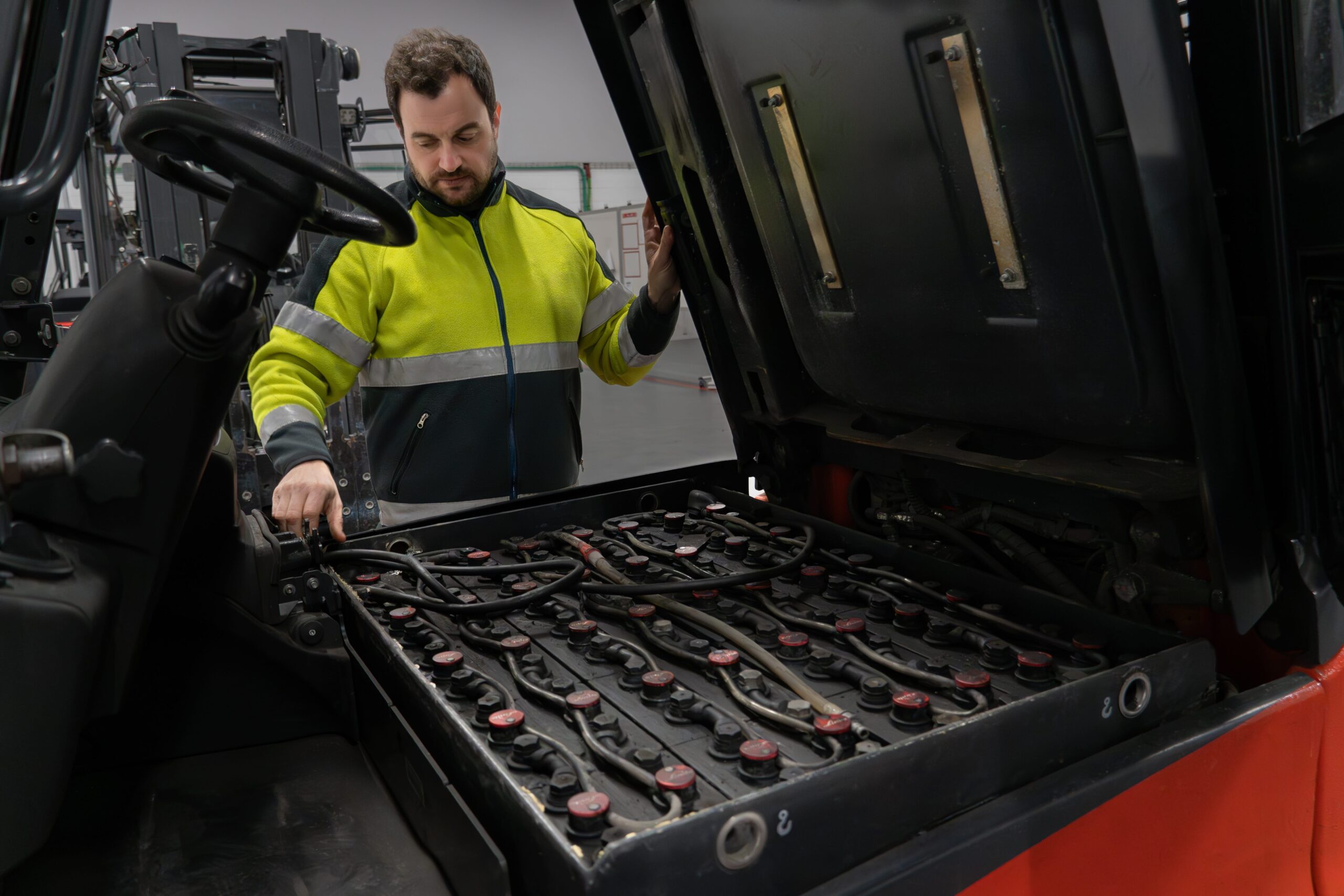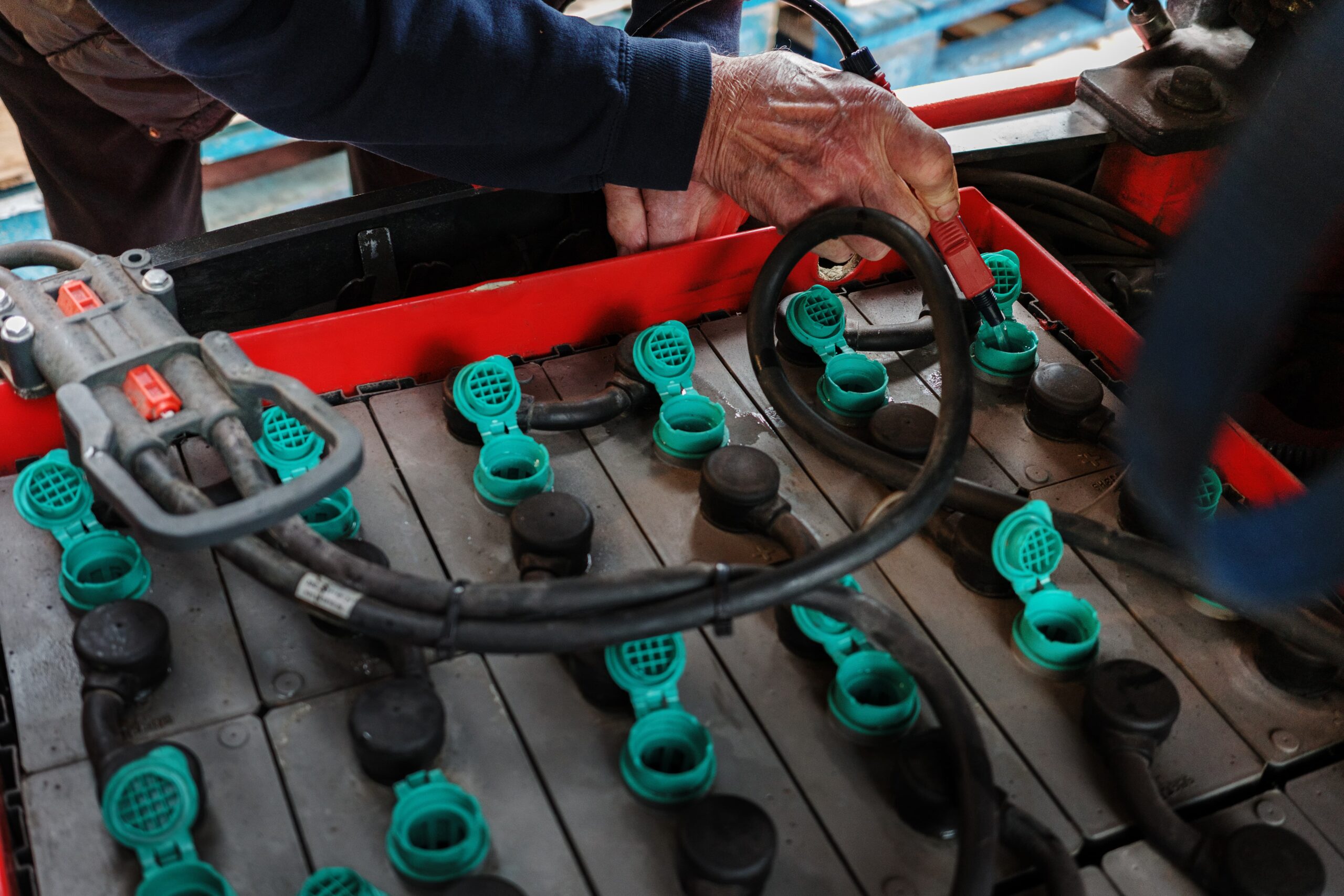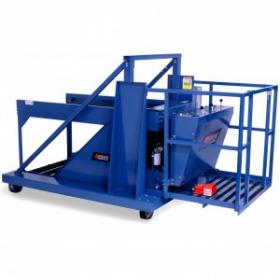In warehouses and industrial facilities, forklifts keep operations moving. But when a forklift breaks down, productivity grinds to a halt. One of the most common reasons for forklift downtime is a neglected battery. Forklift batteries are more than just a power source, they’re an investment. And like any investment, they need regular care to deliver long-term value.
At Beal Industrial Products, we’ve seen firsthand how proper battery maintenance extends equipment life, cuts operating costs, and improves workplace safety. This is why we want to educate our customers on the importance of battery maintenance.
Why Proper Forklift Battery Maintenance Matters
A new industrial battery is not a small expense. Between forklift batteries, pallet jack batteries, golf cart batteries, and other industrial batteries, warehouses often spend thousands of dollars on each unit, with fleets requiring multiple batteries in rotation. Without the right upkeep, those investments degrade prematurely, forcing early replacements that eat into budgets. Not to mention, poor-performing batteries can slow down productivity.
Well-maintained forklift batteries can last five years or longer, while poorly maintained ones may need replacement in half that time. The difference often comes down to consistent care. By treating maintenance as an essential business practice and not just an afterthought, facilities can dramatically reduce their total cost of ownership.
More Than Just Watering
When people think about forklift battery maintenance, watering is usually the first thing that comes to mind. While proper watering is critical, it’s only one piece of the puzzle. True battery maintenance involves:
- Equalization charging to balance the voltage between cells.
- Checking electrolyte levels and specific gravity to ensure batteries are holding charge properly.
- Inspecting cables, connectors, and terminals for signs of wear, corrosion, or damage.
- Monitoring battery temperature to prevent overheating, which shortens battery life.
- Cleaning to remove acid residue and debris that can cause shorts or corrosion.
Skipping these steps can lead to unsafe conditions, more frequent breakdowns, and ultimately, higher costs.
Save the Headache with a Planned Maintenance Program
For those using lead-acid batteries, managing maintenance in-house can be inconsistent and time-consuming. That’s why battery service suppliers like us a Beal, offer Planned Battery Maintenance Programs tailored for warehouses and industrial operations. These programs ensure your batteries are serviced on a reliable schedule so problems are caught early before they become costly failures.
Benefits of a planned maintenance program include:
- Extended battery lifespan – Get the full value out of your investment.
- Reduced downtime – Fewer unexpected breakdowns mean your operations run smoothly.
- Predictable costs – Maintenance contracts help facilities budget more effectively.
- Improved safety – Professional inspections reduce risks associated with battery leaks or failures.
This is especially beneficial for fleets but can provide value for facilities of all sizes. For many facilities, the savings from covered repairs and avoided battery replacements can more than cover the cost of a maintenance contract.
Consider Low-Maintenance Battery Options
For facilities that want to reduce the time and resources spent on routine maintenance, lithium forklift batteries are worth considering. Unlike traditional lead-acid batteries, lithium batteries don’t require watering, equalization charging, or frequent cleaning. They charge faster, deliver consistent power throughout the shift, and typically last longer than lead-acid batteries.
Key benefits of lithium batteries include:
- Lower maintenance demands – Free up staff and reduce the risk of human error.
- Faster charging – Opportunity charging during breaks keeps equipment running longer.
- Longer lifespan – Many lithium batteries can last twice as long as lead-acid batteries.
- Energy efficiency – Less wasted energy and heat, lowering utility costs.
Lithium batteries may come with a higher upfront cost, but many facilities find the long-term savings in labor, energy, and replacement expenses make them a strong option. At Beal Industrial Products, we help customers weigh the pros and cons of different battery types to find the right solution for their fleet.
Why Beal Industrial Products is the Mid-Atlantic’s Trusted Provider
Not all service providers are created equal. At Beal, we combine decades of experience with a commitment to keeping your operations running at peak performance. Our team offers top-of-the-line batteries and specializes in battery surveys, preventive maintenance, and comprehensive service plans designed around your fleet’s unique needs.
Whether your operation relies on lead-acid batteries with planned maintenance or you’re considering a transition to low-maintenance lithium options, We are the partner you can count on. We proudly serve warehouses and industrial facilities throughout the Mid-Atlantic, helping businesses save money, improve efficiency, and protect their equipment investments.
Invest in Your Forklift Fleet’s Future
Forklift batteries are the heart of your material-handling equipment. By prioritizing maintenance, you’re protecting your entire operation.
If you’re ready to maximize the life of your forklift batteries and minimize downtime, talk to the experts at Beal Industrial Products. Our planned maintenance programs and battery expertise are the smart, cost-effective choice for warehouses and industrial facilities across Maryland and the rest of the Mid-Atlantic.
Contact Beal Industrial Products today to schedule a maintenance consultation and keep your fleet running strong.





